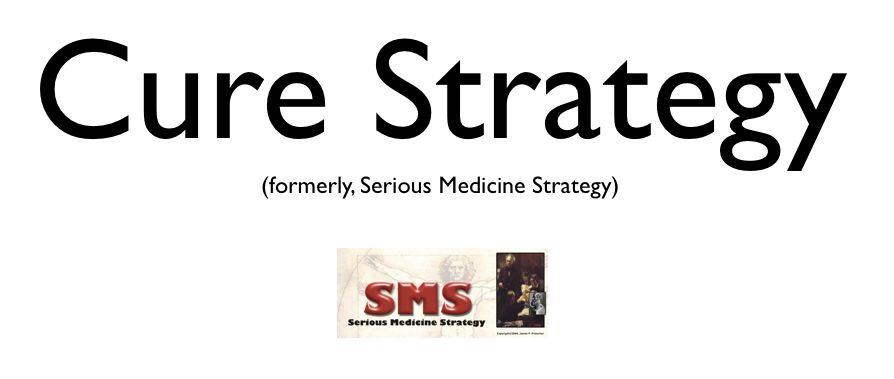
Serious Medicine is based on the idea that science and technology can "bend the curve" of illness and incapacitation. That is, not just help us "lose cheaper" to disease, but actually to fight back and win. A big part of curve-bending is the application of dynamic analysis--and more to the point, apply a dynamic solution. Don't just accept what Mother Nature has done to us, and maybe figure out how to trim the costs here and there, but instead, reject the idea that we are ordained to get sick and die from a disease that can be cured.
The Serious Medicine Strategy is based on the idea that the American people want us--all of us--to fully mobilize against illness and incapacitation. If we do, if cures come into existence, then Americans stand ready to reward the mobilizers with money, votes, and approbation.
And so I am always intrigued by examples of scientists and associated visionaries who figured out how to achieve profound increases in output, productivity, and effectiveness. It happens all the time: It's called "progress."
A case in point is Norman Borlaug, who bent the curve on agricultural productivity, thus causing "the green revolution" in the Third World, which saved millions, maybe billions, from starvation. For his heroic efforts, Borlaug won wide praise, including the Nobel Peace Prize. Borlaug died last week at 95, having fought the good fight, indeed. As Henry I. Miller wrote today in a tribute in The Washington Times:
How successful were Mr. Borlaug's efforts? From 1950 to 1992, the world's grain output rose from 692 million tons produced on 1.70 billion acres of cropland to 1.9 billion tons on 1.73 billion acres of cropland -- an extraordinary increase in yield of more than 150 percent.
A 150 percent increase in productivity? That's nothing in the computer world, where we have been on the steep part of the "S" curve for decades now. But for the most everything else, a 150 percent increase in productivity is pretty darn good. Most sufferers from disease would be happy to know that their chances of survival had increased by 150 percent.
If the late Norman Borlaug could do it, so can others. And if they do, we will shower them with our gratitude.


No comments:
Post a Comment